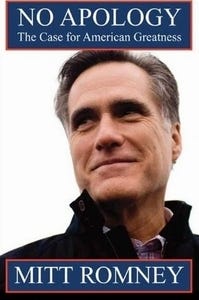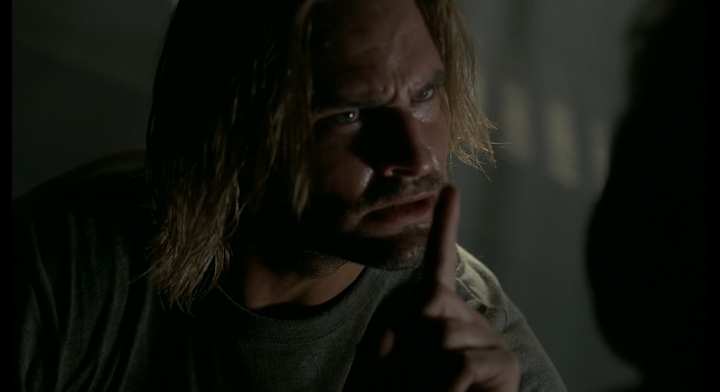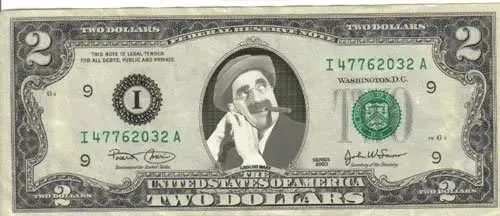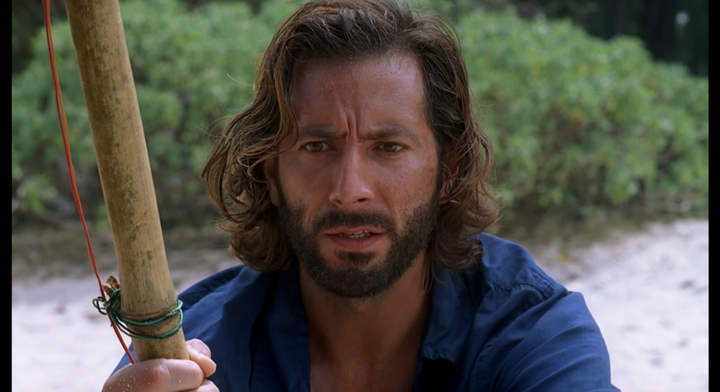Both Sides, Part 2: Beyond Reproach
The latest Chappelle thing, and the latest horrible terrible no-good Texas School thing, and a question: What are the two sides in “both sides,” anyway?

Note: this essay was originally published on Revue on October 25, 2021.
This is Part 2 of a thing. I think there will be 4 parts.
Part 1 is here. Short version: when we “consider both sides,” what’s usually meant is whether or not we agree with a proposed idea. “Both sides” being the people who agree and the people who disagree, not the people who are affected and the people who are not. Thus, “both sides” becomes a formulation that erases the people most affected from consideration.
Behold.

NBC News @NBCNews
Carroll Independent School District exec director of curriculum Gina Peddy: "Make sure that if you have a book on the Holocaust, that you have one that has an opposing — that has other perspectives”
Teacher: “How do you oppose the Holocaust?”
Peddy: “Believe me, that’s come up”
4:09 PM - 14 Oct 2021
I ended by wondering why we live in a society that insists on such a formulation of “both sides.”
Here we go.
________
I wrote a few weeks ago about “spirit,” by which I didn’t mean anything supernatural or intangible, but simply what happens when people gather around belief until it manifests as action and eventually into a status quo.
Belief creates spirit creates action creates reality.
The team played with a spirit of intensity and it carried them to victory.
The letter of the law is about voting but its spirit is racial inequality.
Spirit.
When I’m confused by something that’s happening in the world, and want to understand what’s going on, I find it useful to work backward from the confusing action to the spirit in which the action appears to be functioning, which leads me back to the generative belief.
Here’s a generative belief I frequently find:
I/we deserve to live in this world—and you are making that difficult.
Here’s another:
I am/we are beyond reproach—and how dare you suggest otherwise.
Look at that: we have two sides.
So, OK. Let’s consider both sides.
________
Imagine you’re someone who is Beyond Reproach.

Gov. Bill Lee @GovBillLee
In TN, our students will be taught unapologetic American exceptionalism.
10:57 AM - 11 Aug 2021
Like, for example, let’s say you are a citizen of the Greatest Country In The World. Let’s say God himself (himself) has decided you are his very favorite country, and had chosen you to be Exceptional. You are Great, and everyone knows it, except for haters. Let’s say you hear this so much, you start to believe it.
Or let’s say this: let’s say you are acknowledged as one of the greatest standup comedians of your generation, known not just for your skill at making people laugh, but for your moral voice, and your proven consistency to your principles. You are Great, and everyone knows it, except for haters. Let’s say you hear this so much, you start to believe it.
Here’s something I’ve noticed about being Beyond Reproach: you can’t ever improve. You can only defend your perfection.
In fact, you have to be anti-improvement, if you are Beyond Reproach, because the very fact that you improved means that you were not previously Beyond Reproach. Carried to its furthest extent, you might find a political movement that is so Beyond Reproach it even refuses, against all logic, to maintain its own bridges and roads, care for its own citizens, or even accept cures to new diseases.
It’s an extreme hypothetical. Let’s all hope we never travel down that path as a country.
New perspectives are out. If you are Beyond Reproach and listen to new perspectives, you might learn something you didn’t know already, which might lead to you learning you were wrong, which is an invitation to improve. That is, change and growth. But to change and grow, you have to enter into a spirit of change, which allows that you might have been wrong … but which also allows you to improve.
Apologies are right out. Not on the table. Not even to be considered. Unapologetic is deemed the most virtuous posture for people Beyond Reproach—because to apologize means you were not Beyond Reproach, and strongly suggests you still might not be.

Which means that, if you are Beyond Reproach, you have to close yourself off most especially to perspectives that say I deserve to live in this world, and you are making that difficult.
Especially those perspectives, because they carry a moral imperative. They speak to harm and damage, of injustice, of wrong that requires redress. They force a choice: to listen and change, or to refuse.
They are, at their essence, reproachful.
Here’s what a reproachful perspective says: What you say and do about us—your words and deeds, and even your indifference—have consequence. All along, someone has been paying the consequence of your words and deeds and indifference. That someone has been us, all along, and the consequence has been the loss of our lives and well-being. Now, that someone should be you, and the consequence should be that you modify your words and deeds, and end your indifference.
A person who is Beyond Reproach has no interest in this.
And so they will refuse: to hear, to change, to care, or to apologize.
And their blamelessness has been defended another day.

A.R. Moxon @JuliusGoat
Being a blameless person is psychologically distressing. Every challenge to blamelessness—awareness, acknowledgement, confession, repentance—are attacks to be defeated.
A blameless person is constantly on the defense.
Which makes them extremely defensive.
As we see.
8:36 AM - 18 Jun 2021
But there’s a danger.
What if … what if other people start to decide they Might Be Wrong, and listen to the new perspective anyway?—and then, because of new awareness, they learn and grow? What if, because they learn and grow, they, too, join in saying: these people deserve to live in this world, and we have made that difficult through our words and deeds and indifference, and then change their behavior?
That would change the world into a somewhat more inclusive one.
A politics of inclusion is going to take care with people it had previously treated with carelessness. A politics of inclusion is going to be sensitive in areas where previously it was insensitive. There are going to be things that used to be said that are not going to be said anymore, in a politics of inclusion. There are voices that will be heard that previously had been silenced.
Suddenly people who previously could speak and act without care for consequence might need to take some care, while people who always had to be careful what they said or did might have a bit more space to speak things that were always true but have only recently been heard.
All this listening and changing might lead to reproach, for those who refuse to listen or change.
So a person who is Beyond Reproach will feel an overwhelming need to control—not only of their own reaction to new perspectives, but everyone else’s, as well. Not only of their license to say and do as they please, but over what other people should think about their decision to do that.
A person Beyond Reproach is habitually and instinctively going to counter a politics of inclusion with a politics of domination.
I think this is exactly why we see people attempting to control the flow of new awareness on things like racial injustice or trans inclusion. Or, when they fail in that, and new awareness floods in, to insist that be allowed to operate unchanged in a changed world without the consequence of reproach. And, whenever they receive the consequence of reproach, to reframe it as oppression—ignoring the fact that nobody is attempting to legislate their ability to marry, or adopt, or work, or enter bathrooms, or vote, or even just exist, but only criticizing their insistence on legislating other people’s right to do so.
They aren’t the ones affected, they’re the ones doing the affecting. Their penalty isn’t marginalization for who they are, but reproach for what they are doing to others.
They call it cancellation.
They call it hatred.

Kay Ivey @kayiveyforgov
We have permanently BANNED Critical Race Theory in Alabama. We’re focused on teaching our children how to read and write, not HATE.
1:45 PM - 20 Oct 2021
So you might get a political party that dedicates their time passing laws in an attempt to systemically criminalize people’s budding awareness of the systemic nature of racial injustice in this country, defending their own blamelessness until their involvement in that system’s racism has become unmistakable and undeniable, as they start calling themselves things like “anti-anti-racist, and anti-anti-fascist,” which is arithmetic even a child educated in Texas schools in 2021 should be able to work out.
Or you might get a comedian who is widely celebrated for, among other things, being astute on systemic racial injustice, who nevertheless spends a significant portion of his career trying to control the public reaction to his material critical of the very existence of trans people, which he repeats almost as a dare, until his audience starts to be composed mostly of people who want to hear things like that, as he becomes one of the many somebodies who can be counted on to say those sorts of things.
All these people, Beyond Reproach, might demand that “both sides be heard"—a framing that ignores the voices of people actually affected, a focus instead on the question do you disagree or agree?—a framing that insists that as long as somebody disagrees, the debate must never end, and gives the right of permission on the question do these people deserve to exist? to the people who disagree with the premise.
________
There are so many things you can’t say anymore, say people who say those things, often repeatedly, and for huge paydays.
We have to be so sensitive now, so careful, say the least sensitive people, who are most used to taking the least care.
We cannot allow our children to be indoctrinated by curricula forbidding them from certain subjects, say people writing laws that specify curricula of indoctrination, which list forbidden books and subjects.
This is chilling to the marketplace of ideas, write people who have brought precious few ideas to the marketplace other than the specious notion that every harmful idea must be listed on the marketplace of ideas, in perpetuity, forever.
The marketplace of ideas. It’s an imperfect metaphor for discourse, but it has its uses. Let’s consider it.
To the extent that there exists a marketplace of ideas, it seems likely that ideas that refuse improvement or modification are most likely to eventually fail—for their refusal to improve, if for nothing else. And that’s fine, actually. No marketplace is truly free. Some listings get regulated off the market because they’re deemed harmful to a stable society. Others fail because they can’t compete with better ones. That’s good, actually, in healthy markets.
I hear a lot about the marketplace of ideas, but very little consideration about the fact that in a marketplace of ideas, some ideas will naturally fail.
Yes, in a marketplace of ideas, what does an idea look like as it begins to show signs of failure, as those who have invested heavily in it start to demand to have their license to keep profiting from it subsidized?
Let’s talk about that next time.
________
A.R. Moxon is the author of The Revisionaries, which is available in most of the usual places, and some of the unusual places. He put the lime in the coconut and shake it all up.




Comments ()